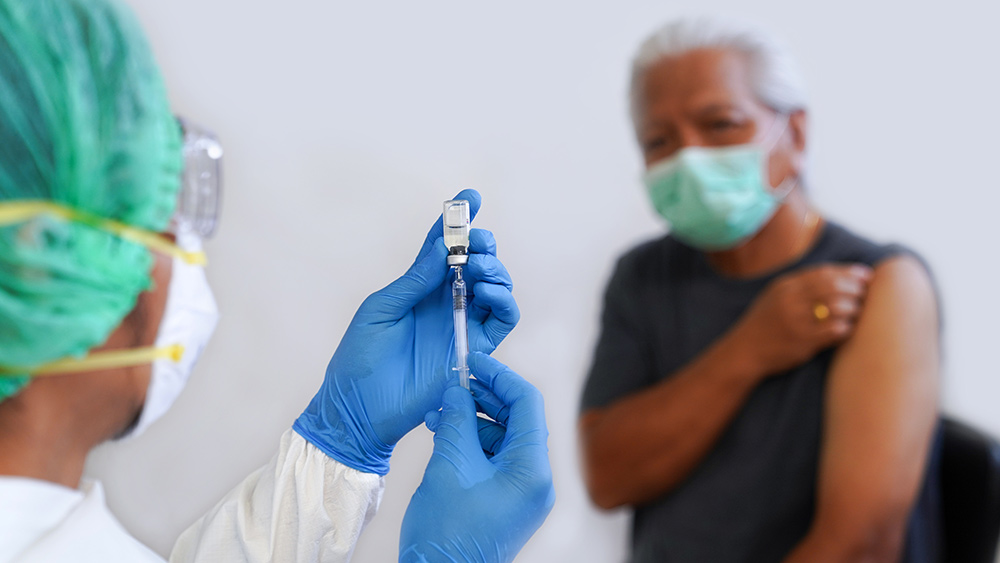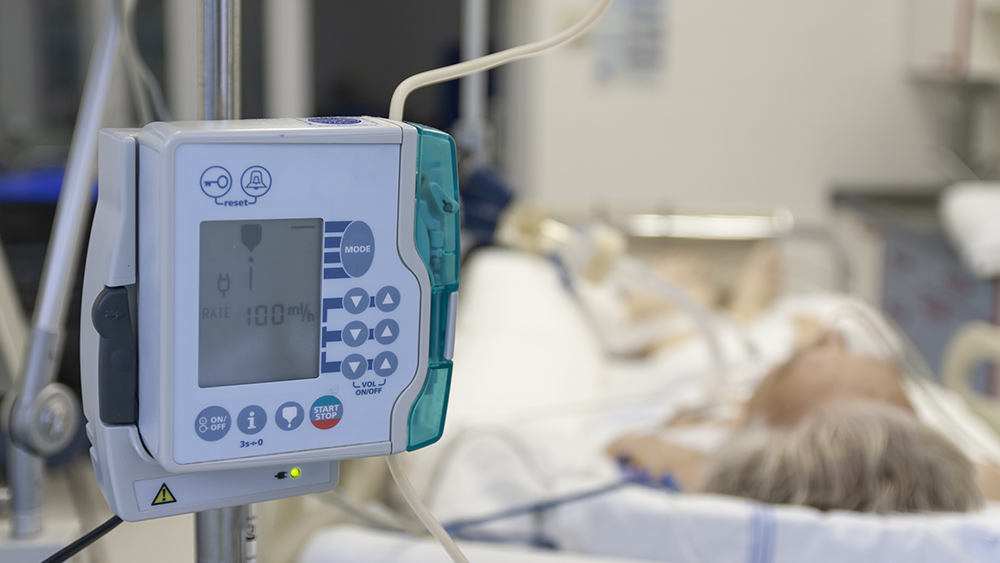Big Tech wants to fire your doctor and become your new “health care” provider
12/30/2019 / By Ethan Huff

If you like your doctor, you can keep your doctor – just so long as you agree to make Amazon or Google your doctor, anyway. This is the latest scheme being drummed up by the overlords over at Big Tech, which reportedly want to hand control over the health care industry to newfangled artificial intelligence (AI) listening technologies like Alexa and Siri.
During a recent interview with Fast Company, tech guru Peter Diamandis attempted to make the case for this paradigm shift, contending that robots are more apt than real-life physicians at tracking and monitoring the health of patients, making clinical diagnoses, and even administering pharmaceuticals.
The co-founder of X-Prize, Health Longevity Inc., and the ominously named Singularity University, Diamandis is of the persuasion that human labor in the medical field is woefully obsolete. Instead, he’d like to see companies such as Apple and Facebook replace the human workforce in medicine and perform its most pertinent functions entirely robotically.
“Healthcare is the biggest business in the world, and it is phenomenally broken. So, do I think Apple and Google and Amazon can do a better job? A thousand-fold,” Diamandis is quoted as saying.
“We’re going to see Apple and Amazon and Google and all the data-driven companies that are in our homes right now become our health care providers,” he further added, referring to always-listening “smart” gadgets like Google’s Assistant, Amazon’s Alexa, and Apple’s HomePod that spy on people day and night.
Google is already in the process of doing this, we earlier reported, with its “Project Nightingale” electronic medical records program.
In case you missed it, Google is currently amassing tens of millions of private medical records across 21 states, and compiling this data into an AI-driven tracking system. Google’s goal is to eventually exploit this data as part of the pharmaceutical and health care companies it’s forming internally, which would make Google its own full-service health care provider.
For more related news about the AI takeover of medicine and health care, be sure to check out AIsystems.news.
Big Tech wants to know everything you’re eating, when you’re eating it, and even the composition of your bowel movements – then force you to take pharma pills to treat “pre-illness”
Diamandis hopes to one day live in a world where AI robots track everything people do, and even who they are. In his view, the more personal information that Big Tech has on people, including their genetic makeups, health histories, dietary habits, and bowel movements, the better its AI systems will be at spotting illness, or even just the potential for illness.
In other words, Big Tech wants to be your preventative medicine specialist, so to speak. Apple, Amazon, and Google want to have their always-listening speakers be able to announce when you’re in the room things like, “it’s time to take your psych meds because today is going to be a difficult day,” and other such Orwellian determinations.
“It is literally hundreds, if not thousands, of times cheaper to do that,” Diamandis claims about this so-called preventative approach, which he says will shift the entire medical system away from symptom treatment post-diagnosis to symptom treatment pre-diagnosis.
Ignoring the type of preventative healing approach that we’ve long advocated for, which includes eating right, sleeping soundly and regularly, and staying hydrated, Diamandis’s approach involves having non-human machines determine what pharmaceuticals people should take before they even fall ill – do you see how he’s manipulating the idea of “prevention?”
Nevertheless, this would seem to be the future of medicine, at least in the United States where millions of people appear eager to install as many of these always-listening AI devices inside their homes and workplaces as they can possibly afford – which is a dream come true for Diamandis and the rest of the tech cabal.
“Diamandis predicts Apple and Amazon will come up with a service where a person pays a company to keep them healthy, rather than to cover the cost of illness, based on their health history and daily activities,” writes Ruth Reader for Fast Company.
“And big tech could not only influence a person to make healthier decisions,” she adds, “it could force them.”
According to Amy Webb, a professor of strategic foresight at the New York University Stern School of Business, who’s been studying this phenomenon extensively, the day could soon come when multinational corporations like Apple, Google, and Amazon run everything in people’s homes, including not just healthcare but “smart” refrigerators that “could cut you off from snacking between meals,” and “smart” garages that “could keep you from accessing your car in favor of walking to work.”
In other words, it’ll be a world where technocrats like Mark Zuckerberg, Tim Cook, Jeff Bezos, and Sundar Pichai monitor and control every aspect of your personal life to ensure that you’re eating a proper New World Order diet, and taking your appropriate New World Order medicine at government-dictated intervals.
Just like the false notion of “pre-crime,” this “pre-illness” paradigm will allow tech companies to quite literally make pre-diagnoses of diseases they don’t even have, while also forcing them to treat these nonexistent illnesses with FDA-approved “medicine,” which we know includes only patented chemical cocktails manufactured in a lab by Big Pharma.
Be sure to read the full Fast Company report covering Diamandis’ interview at this link.
You can also learn more about the sinister nature of “smart” technologies at Surveillance.news.
Sources for this article include:
Submit a correction >>
Tagged Under:
Alexa, Amazon, Apple, autonomy, bad doctors, Big Tech, doctor, doctors, drug cartels, Google, health care, health freedom, healthcare, HomePod, Liberty, Peter Diamandis, pharmaceuticals, preillness, Prescription drugs, prevention, surveillance, tech giants, tech medicine
This article may contain statements that reflect the opinion of the author
RECENT NEWS & ARTICLES
PharmaceuticalFraud.com is a fact-based public education website published by Pharmaceutical Fraud Features, LLC.
All content copyright © 2018 by Pharmaceutical Fraud Features, LLC.
Contact Us with Tips or Corrections
All trademarks, registered trademarks and servicemarks mentioned on this site are the property of their respective owners.





















